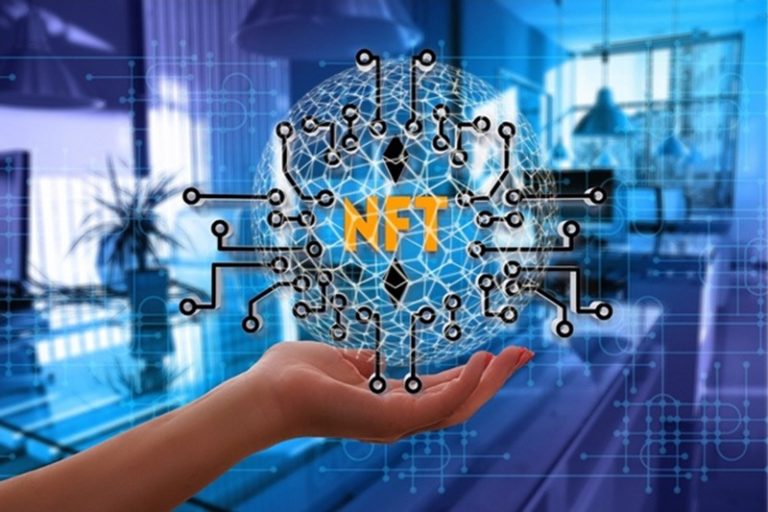
NFT scams are becoming increasingly common as hackers find new ways to infiltrate the blockchain and steal cryptocurrency or artwork. A recent report released by Elliptic shows that between July 2021 and July 2022, NFT-related scams accounted for approximately $100.6 million. One of the biggest scams to date was Aptos Chimp, an NFT built on the Aptos blockchain, which scammed investors of 1.5 $APT (roughly $12.6 million) through a fake site drainer in October 2022.
As NFTs continue to surge in popularity, so are the scams. Below are some common NFT scams to be aware of:
Discord and Social Media Hack
In 2022, several projects, including Bored Ape Yacht Club, Squiggles, Doodles, and Kaiju Kingz experienced significant losses due to malicious attacks resulting from server breaches. Scammers have also targeted accounts on social media sites like Instagram and Twitter, in addition to Discord. For example, the Bored Ape Yacht Club’s Instagram account was compromised in addition to Discord, causing the project to suffer losses valued at 200 ETH. Additionally, another popular NFT project, Azuki suffered losses totalling more than $750,000 USDC after a Twitter hacker posted a malicious link on the platform in January 2023.
To prevent falling victim to such prevalent scams, always be on the lookout for the official Twitter announcement. You can also check Project’s Telegram and Discord to confirm that the mint or airdrop update on their other social media pages is genuine.
Another important red flag to watch out for is channel disorganization. Most times, when a Discord channel is hacked, scammers often disorganize the activities with financial-centric and absurd content.
Unsolicited Discord DMs
One of the common tactics scammers employ to steal NFTs away from communities is to clone moderators’ profiles and offer fake assistance through unsolicited DMs. These scammers mostly impersonate moderators on platforms like Discord and target new members for their scheme. Once they have gained the member’s trust, they may request private information such as seed phrases under the guise of offering assistance.
However, Discord allows you to prevent direct messages from strangers. So, ensure to always lock your DMs from unknown users or totally restrict messages from certain channels.
Register for Tekedia Mini-MBA edition 19 (Feb 9 – May 2, 2026): big discounts for early bird.
Tekedia AI in Business Masterclass opens registrations.
Join Tekedia Capital Syndicate and co-invest in great global startups.
Register for Tekedia AI Lab: From Technical Design to Deployment (next edition begins Jan 24 2026).
Mint Scams and Rug Pulls
Over the years, the NFT, like every other aspect of Web3, has witnessed its share of founder-driven scams and rug pulls. For example, the founders of Ballonsville, who had previously defrauded investors, committed another fraud by launching a new project, Reptilian Renegade, in 2022. However, after the founder’s identity and historical scam were exposed, the project’s value plummeted. Similarly, in April 2023, Zkquads, a highly anticipated project on the ZkSync platform, executed a rug pull during the minting process and immediately deactivated their Twitter account.
To avoid falling victim to such scams, steer clear of projects with unclear founder identities. Conduct due diligence by asking questions during Ask Me Anything (AMA) sessions and by reviewing their Discord and website to verify their identities.
Additionally, use at least two separate NFT wallets: one for minting and another exclusively for purchasing NFTs. Be cautious with minting links and wait until several users have successfully participated in the minting process before proceeding to mint.
Look-Alike Websites
Scammers often use imitation websites to defraud unsuspecting victims, exploiting project websites and online marketplaces to carry it out. For example, the Google ad scam targeting the X2Y2 NFT marketplace led to a loss of 100 ETH.
Fake Twitter and Support Pages
Web3 scammers may deceive users by creating fake Twitter accounts and support pages for existing or upcoming projects. They exploit these platforms to impersonate helpful representatives and trick victims into sharing their wallet details and seed phrases under the pretense of account verification. So, consider Discord’s open ticket system for submitting complaints and never disclose your seed phrase or sensitive information to anyone offering assistance via social media.
Phishing
In 2022, OpenSea suffered a data breach when a contractor leaked customer email data to an external entity. Scammers used this information to steal $1.7 million worth of ETH by liquidating stolen NFTs from victims’ wallets. Oftentimes, scammers replicate legitimate marketplaces in their emails to deceive NFT investors. So, ensure you always verify the sender’s email address and avoid clicking on suspicious links.
Fake Airdrops
NFT scammers may use fake airdrops to deceive users and drain their digital wallets. For instance, in the Bored Ape Yacht Club scam, attackers distributed counterfeit Otherside Land NFTs to BAYC holders. However, since airdrops do not guarantee future token value and may attract hype without offering substantial worth, it is essential to carefully evaluate the risks and rewards before participating.
Influencer Scam
Influencer marketing has become a common NFT promotional strategy. While influencer marketing isn’t bad by nature, there’s a rise in scams.
While identifying scam influencers can be challenging, oftentimes these scammers use online personalities with fake followers, poor reputations, or giveaway influencers to manipulate their audience.
Also, watch out for other red flags such as a high number of bot followers, a history of scam promotion, and frequent giveaway posts. Additionally, influencers who label themselves as “promoters” or charge fees for promotion may prioritize financial gain over long-term growth.
Final Thoughts
NFTs have undergone significant development across various blockchains, including Ethereum, Arbitrum, Solana, Polygon, and Near. Recently, advancements in Bitcoin through Ordinals and the ZkSync ecosystem have further expanded their adoption. As the NFT market continues to grow, so do the complexities of scams targeting investors. So, ensure to conduct thorough research before buying into any project. Beyond that, always stay vigilant and keep your wallet information private.



